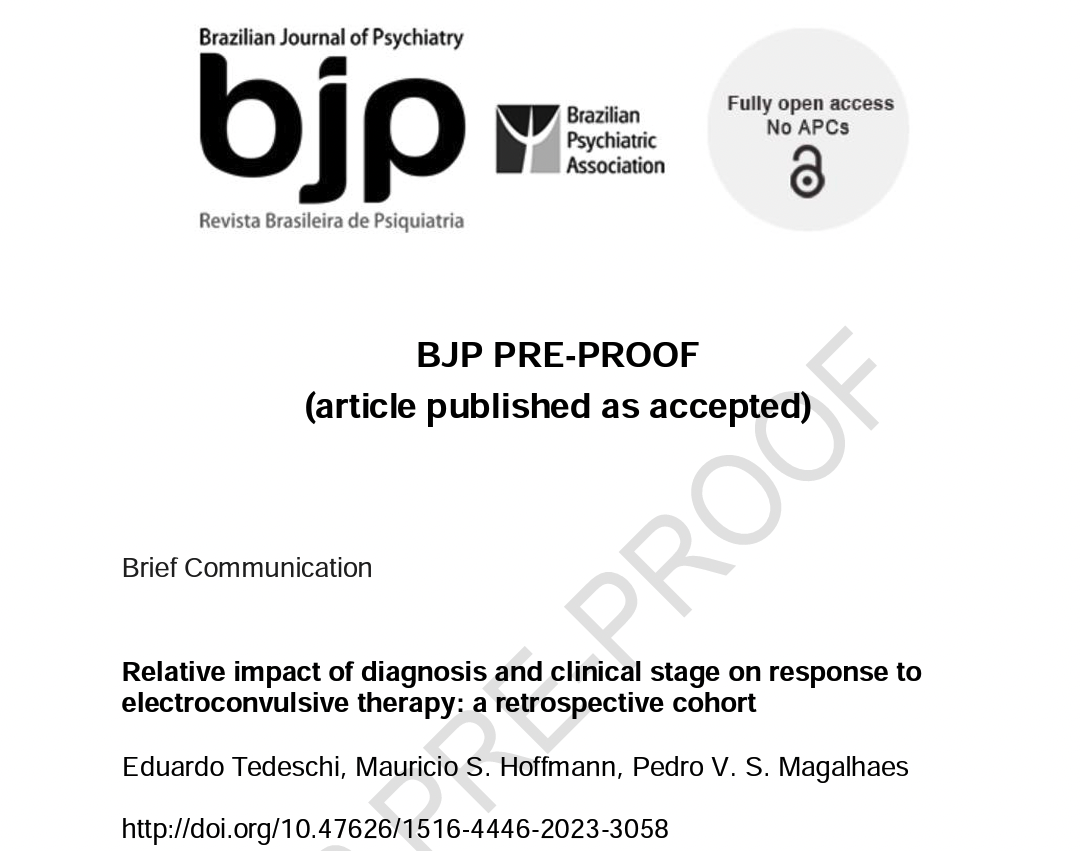ECT Response Prediction: New Study From Brazil
Out on PubMed, from researchers in Brazil, is this study:
Relative impact of diagnosis and clinical stage on response to electroconvulsive therapy: a retrospective cohort.

Objective: Electroconvulsive therapy (ECT) is commonly indicated for refractory psychiatric disorders. However, response comparison across diagnoses is scantly investigated. Here, we aimed to evaluate the relative impact of diagnosis and clinical staging as response predictors in a cross-diagnostic sample.
Methods: We investigate, in a retrospective cohort of adult inpatients (N=287) who underwent at least six sessions of ECT, predictors of complete response (a clinical global impression of 1) to ECT. We use adjusted regression models to estimate the impact of clinical diagnosis and staging on complete response and dominance analysis to assess the relative importance of these predictors.
Results: Those with a depressive episode as a primary indication for treatment were more likely than all the other groups to have complete improvement, while those with psychosis were the least likely; clinical stage had a significant influence on outcome in all diagnoses. A diagnosis of psychosis stood as the strongest predictor of non-response.
Conclusion: An indication of ECT for psychosis (mostly schizophrenia) had a dominant impact in our cohort, indicating a worse chance of response. We also demonstrate that clinical staging can aggregate information on response to electroconvulsive therapy that is independent of clinical diagnosis.
Keywords: Staging; depression; electroconvulsive therapy; mania; psychosis.
The paper is here.




Comments
Post a Comment